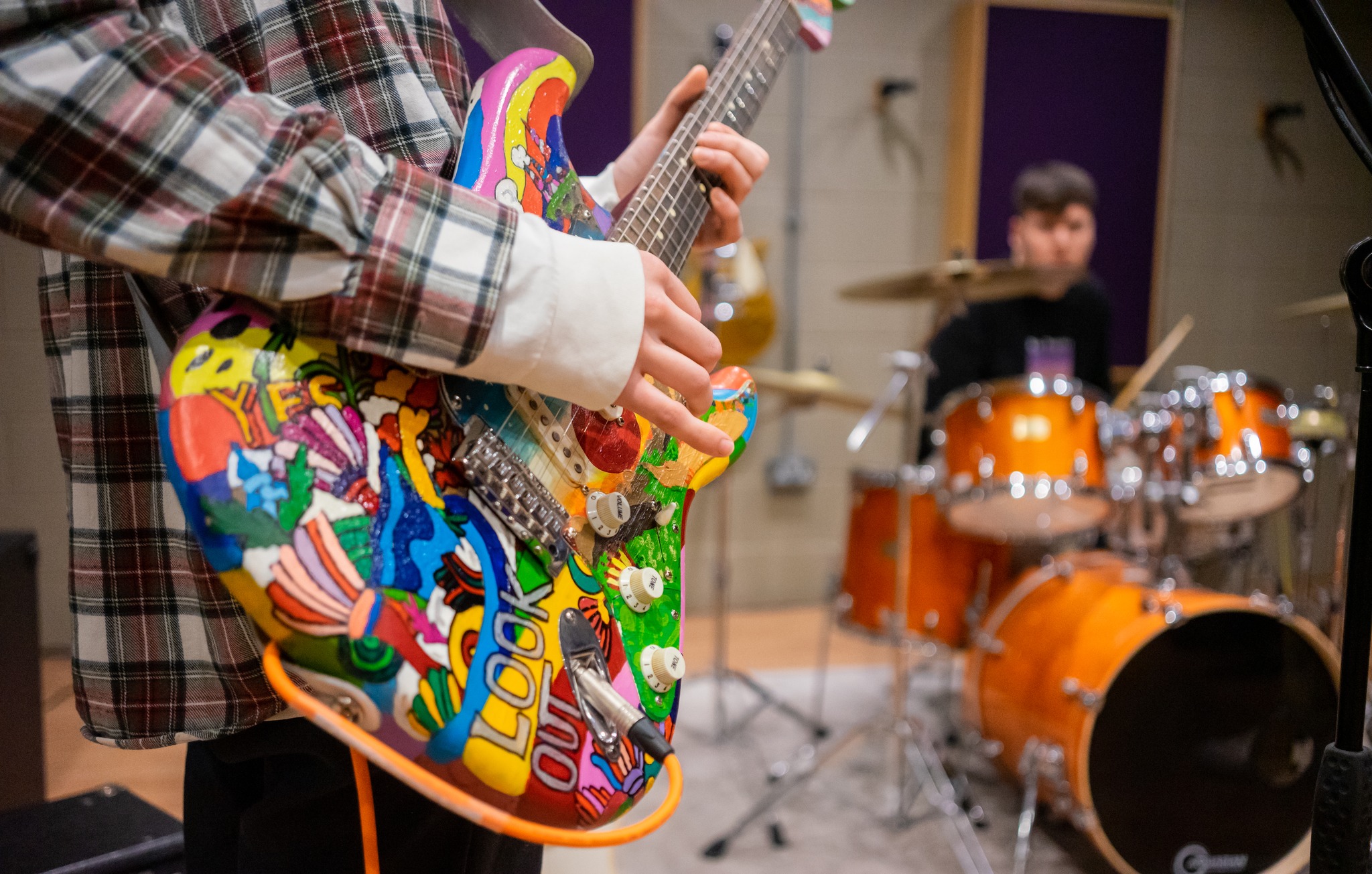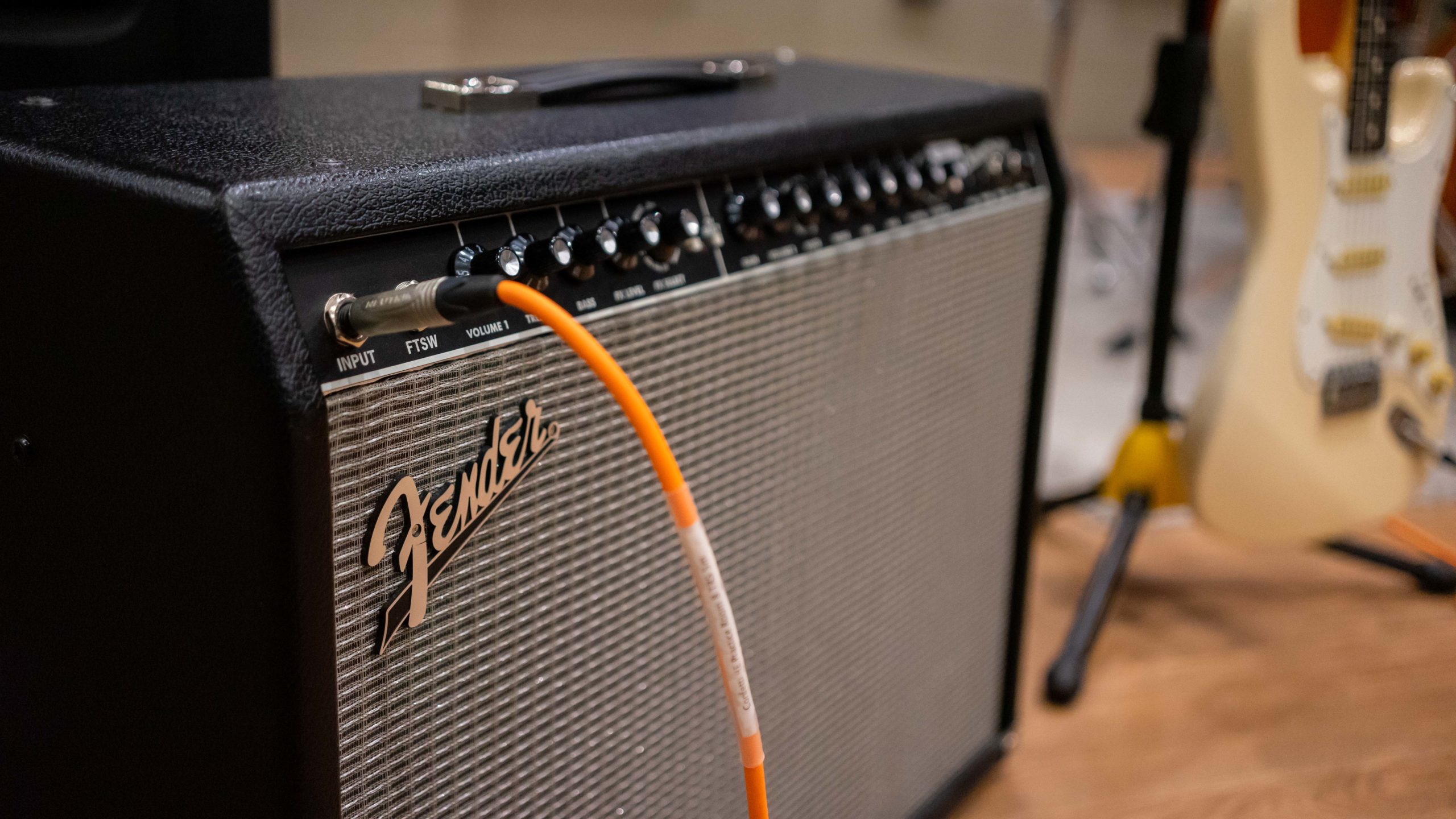
It’s an exciting time at Confetti with the launch of our brand new BA (Hons) Music Business degree – but why is it so important for musicians to learn about business?
Picture this. It’s the late 20th century, the music industry is young and thriving. Small bands are being discovered by A&R agents in local clubs and receiving incredible amounts of money to record albums and go on tour. Everyone’s making money and happy, for the most part.
Fast forward to 2022 and it’s a very different story. Competition is fierce, music is essentially free, most independent record labels have been bought by the three remaining majors, and even if you’re lucky enough to get a deal; the labels aren’t investing anywhere near the same kind of money into emerging artists these days. Sounds bleak, right? Well, no. In fact there’s arguably never been a better time for budding new artists to find success. The music industry is changing, and with it comes an abundance of opportunities.
Before we continue, we should probably point out that this isn’t an anti-record label article. We have a great relationship with several labels from around the globe. With the right deal in place, there’s still a lot they can offer that is mutually beneficial for both parties. You’ll probably notice that a lot of your favourite musicians are signed to a record label for this exact reason.
Going it alone:
In today’s industry, a record deal isn’t the only way to make a career out of playing music, far from it. You just need the skills and knowledge to make it happen. Being a talented songwriter, guitarist, singer etc. isn’t enough if you plan on making a living out of it. You need to know how to sell your product to the public. This means learning skills such as branding, marketing, digital advertising, project management, budgeting and many more. It’s a lot of work but as the sole owner of your business, you’ll get to keep everything you earn.
With the rise of social media and streaming platforms, it’s never been easier to get your music out there. To give you some idea of the mind-boggling audience sizes available; Facebook alone has a userbase of nearly 3 billion people. If you ran a digital advertising campaign to those people, with the goal of convincing them to buy your album for £10 and only 0.001% purchased the product, you would still earn three hundred thousand pounds, minus your costs of course. Now this is a slightly extreme example, as your audience size is likely to be a fair bit smaller if you’re targeting correctly, but it does give you an idea of the possibilities with the right strategy and business plan in place.

Treat your band like a business:
A business? Isn’t that a bit soulless? Nope! Your art is always going to be the centrepiece of everything you do, but if you want to generate an income from it then you’re going to need to find a way to commercialise it. It’s important to consider things like running costs, your competition, advertising, customer acquisition and several other factors that come with the territory of owning a business.
Tracking your finances is of the utmost importance if you’re going to have any idea of how well you’re doing month to month. Keeping up-to-date books will not only help you to figure out where you’re making money but it will also help you find out where you’re losing money. With this information you can then make educated decisions on where to invest your funds and prop up any underperforming areas of your business.
Here’s an example:
Let’s say you want to build your Spotify audience but will likely make a loss from an ad campaign due to Spotify’s low royalty pay out. You could make up for the loss by charging slightly more for your best-selling t-shirt, which has a much higher return on investment. Easy to do, but you need to know your money situation to do it.
There’s no such thing as ‘Selling Out’:
You see it on social media all the time. Some angry person has decided to try and shame a band or artist for appealing to a larger audience than they did before. Ignore that person. If playing music is the career you want for yourself then never apologise or feel bad for earning money. You haven’t sold out. You’re successful.
If you owned an electronics shop on the high street, would you give your products away for free or offer constant reductions? Of course not! It wouldn’t be sustainable, and you’d never make any money. Your music shouldn’t be any different. Being a professional musician and running your project as a business isn’t cheap. If you’re going to create a professional product for your audience to consume, then you will need to pay for things like professional recording studios, marketing campaigns, PR, merchandise costs – the list goes on. So, sell out. Sell out your shows. Sell out of your album. Sell out of anything you can sell. You can use those funds to grow your business and enjoy a long successful career as a professional musician. Your fans will also benefit when you can suddenly afford better production on your recordings, lighting technicians and sound engineers etc.
Music business at Confetti:
At Confetti we’ve created a brand-new course that will teach you all the skills you need to navigate the music industry and earn money from it. You’ll learn in detail about everything covered in this article, alongside several other modules designed to give you the best possible education in Music Business. Whether you want to work as a musician, join the team at a record label, manage artists, or become an events manager for big festivals – our experienced tutors will provide you with all the tools you need to make it happen.


